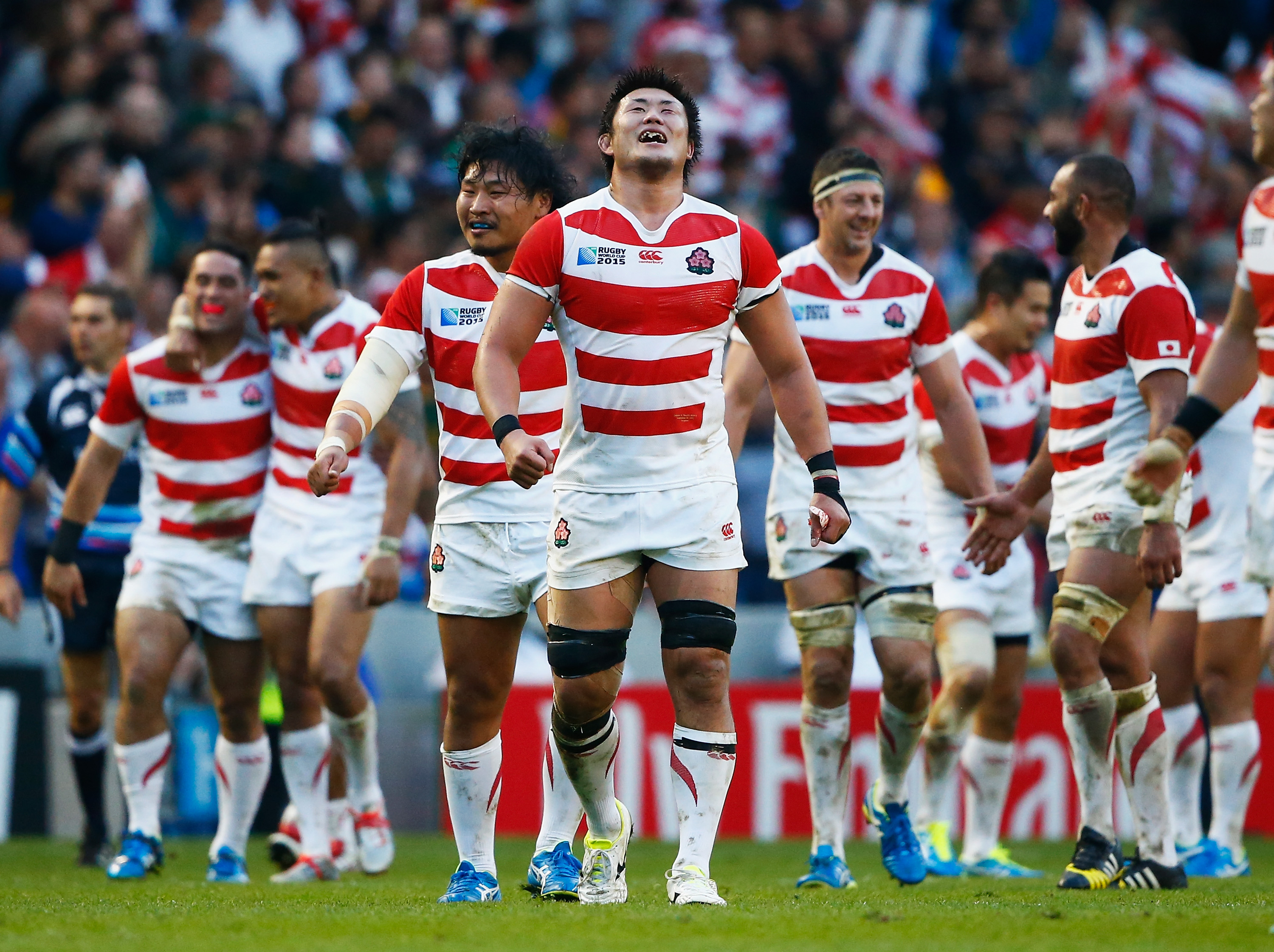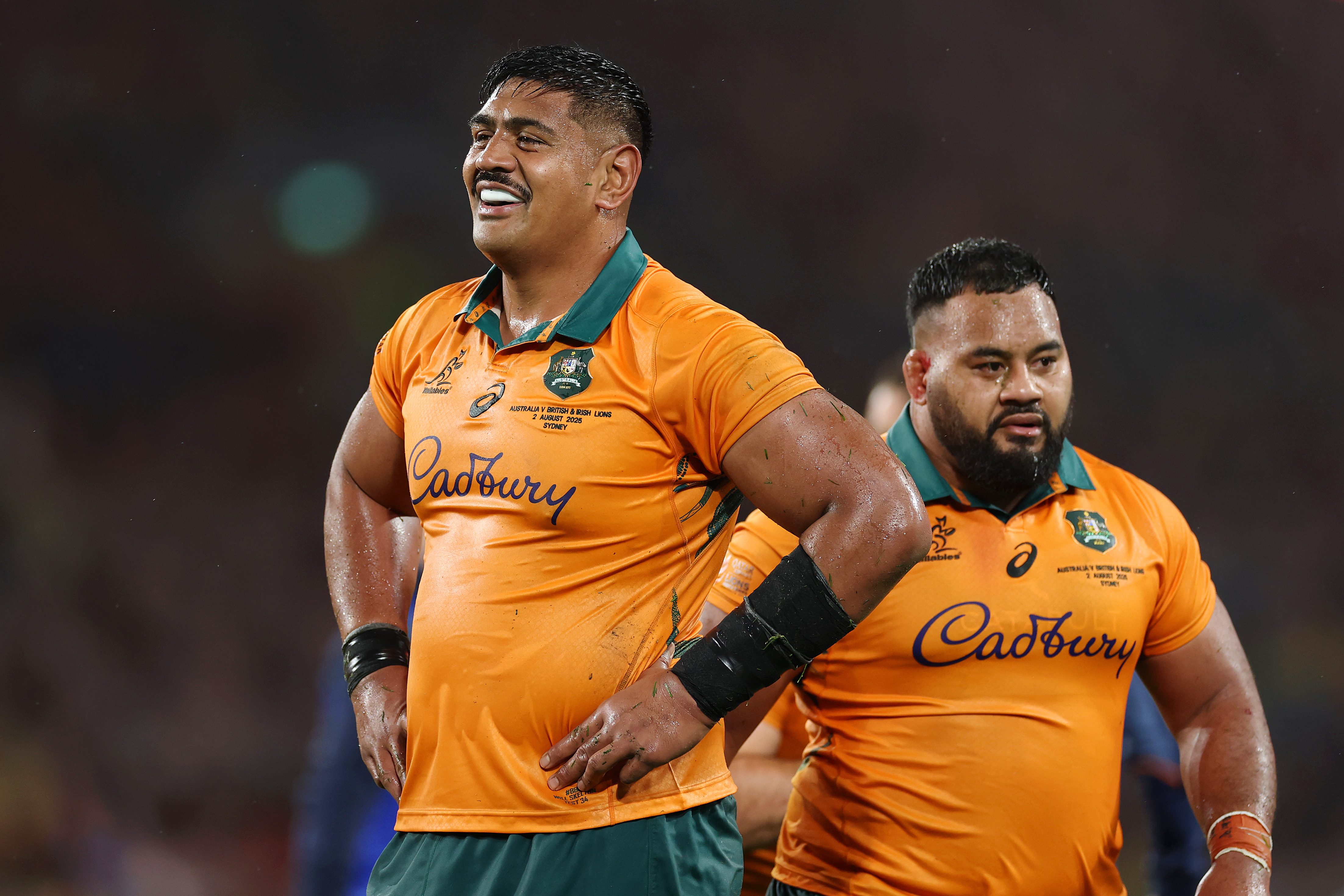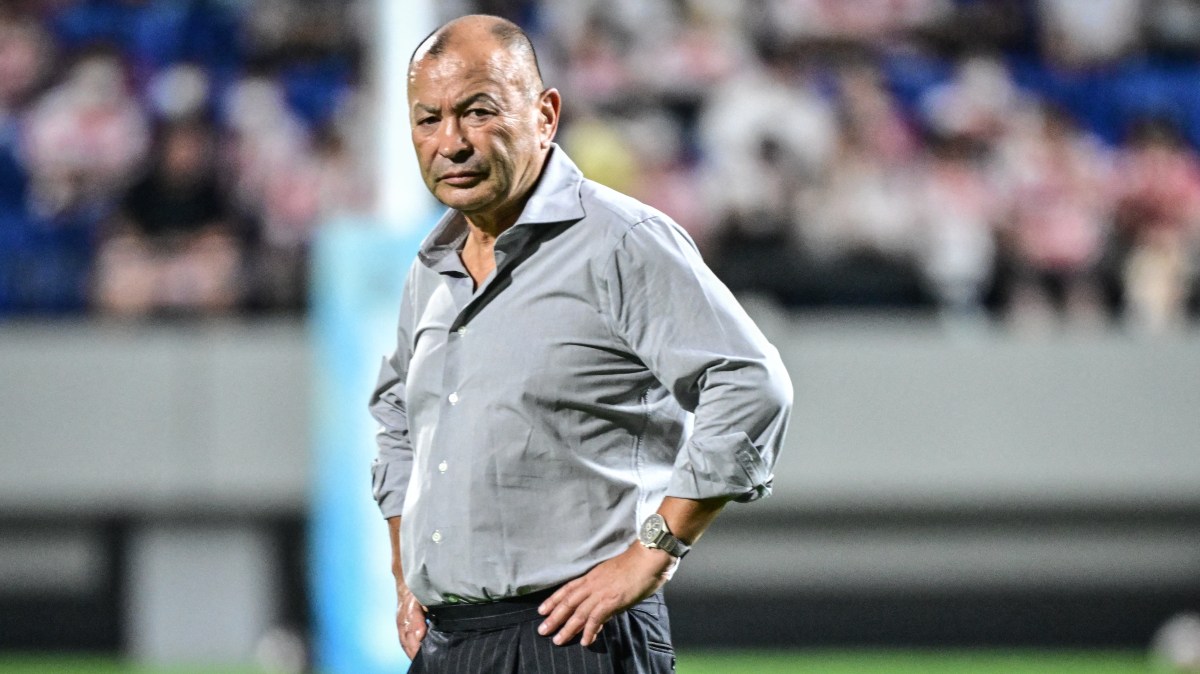Eddie Jones believes rugby needs the introduction of R360 to drive commercialism and new audiences into the sport because the business model at club level is unsustainable.
The former England head coach is the highest-profile figure active in the game to endorse the concept of a global franchise series signing up the best players in the world.
Jones, now in his second spell in charge of Japan, compared the potential of R360 with World Series Cricket, the rebel competition launched in 1977 that revolutionised the international game.
Eight major unions — England, Ireland, Scotland, France, Italy, New Zealand, South Africa and Australia — issued an unprecedented joint statement last week confirming that any player who signs for the new competition will be ineligible for international selection.
Jones said banning rebel players was a predictable move from the establishment — but also a sign that R360 is close to becoming real. R360 organisers, who include the England World Cup-winner Mike Tindall, insist the competition will launch next October.
“I think we need it, mate,” Jones told The Times. “You think about what World Series Cricket did for cricket. It changed the whole game from being a drab game to being an exciting game that people wanted to get involved in. And I think that’s part of the problem of rugby at the moment.
“Test match rugby is that. But we need another level that’s an entertainment level that brings more fans and more sponsors and more commercialism into the game to allow our more traditional levels of rugby to continue.”

Jones will return to England next month to oversee Japan’s match against the Springboks at Wembley
JULIAN FINNEY/GETTY IMAGES
R360 has said from the outset that it wanted to work with World Rugby and ensure all players were available for international duty. For that to work seamlessly, the southern hemisphere’s Rugby Championship competition would need to move into the Six Nations window.
Key officials in South Africa already want that to happen because their domestic rugby is aligned with the United Rugby Championship in Europe. Jones, whose Japan side will face the Springboks at Wembley on November 1, believes strict international windows are required to protect Test rugby.
When England play Australia at Twickenham on the same afternoon, the Wallabies will be without Len Ikitau, Tom Hooper, James O’Connor and Will Skelton. The game sits outside the international window so the clubs in France and England are not obliged to release the players.
The Wallabies even have limited access to Skelton for matches inside World Rugby’s official Test window because of his arrangement with his Top 14 club La Rochelle. Jones believes a global calendar with strictly defined windows is the only way forward.
“We’ve got to be really, really careful about how the game goes forward. International rugby is thriving, and so we’ve got to make sure that keeps thriving,” Jones said.

The unavailability of Skelton, left, for Australia’s autumn tour is another indictment of the fragmented rugby calendar
GETTY
“I think the game is going to have to go to [aligned] international windows. Football’s been at it for a lot longer than us. And that’s the reason they have international windows, so they can separate their domestic leagues, look after the domestic leagues, so their best players play in the domestic leagues.
“We know in most of the countries now, apart from maybe France and Japan, domestic rugby is really struggling financially.
“Top 14 is doing well because of Canal Plus, and in Japan it’s the companies that fund the competition. But everywhere else the game is really struggling. We’ve just seen in America they’re down to, I think, six teams in the MLR. England’s been down to ten teams now. Super Rugby is running off an oily rag at the moment.
“And then, obviously, 360 sees a vacuum, doesn’t it, to step into domestic rugby.”
In 2021, Jones was involved in plans to launch a World 12s competition. It was an ill-fated idea chiefly because it was designed to be played in August or September, when European players are off and southern hemisphere players are involved in the Rugby Championship. It was swiftly blocked by World Rugby and collapsed.
But the motivation was similar to R360, whose vision is to establish a competition that would position itself as the highest level of the game outside of Test matches.
R360 is targeting rugby league stars from the NRL. It will also go after frontline players from nations such as Argentina, Wales, Fiji, Samoa and Tonga who were not signatories of the joint statement issued last week.
A lucrative package for a short season will also be of interest to players near the end of their careers or on the fringes of Test rugby; those who tend to seek one last pay day at clubs in Japan or France.
The game at Wembley has been arranged to mark the ten-year anniversary of the Brave Blossoms defeating the Springboks at the 2015 World Cup. On that day, South Africa could not quell Japan’s rapid ruck-and-run rugby.
Since then, South Africa have won back-to-back World Cups chiefly through power and physicality. Jones admires the work that head coach Rassie Erasmus is now doing to evolve the team and their style of rugby.
“They have had a nucleus of players in 2019 and 2023. Third World Cup around, history shows you have an ageing team. When do you let players go? How long do you keep them for? Rassie is managing all that,” Jones said.
“The win against the All Blacks in Wellington [the 43-10 defeat this year was New Zealand’s record loss] was probably the best example of how they want to play — very traditional South Africa rugby, high balls, but when they won the contest they were able to shift the ball very quickly with athleticism and pace. A melding of the old style with a new style. They looked very, very good.”
And Japan, who peaked in the quarter-finals of the 2019 World Cup? “We’ve got a really young team,” Jones said. “We are moving in the right direction. For a young team to play South Africa at Wembley, there’s no better experience in your life.”

